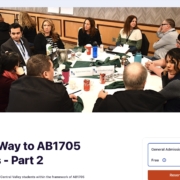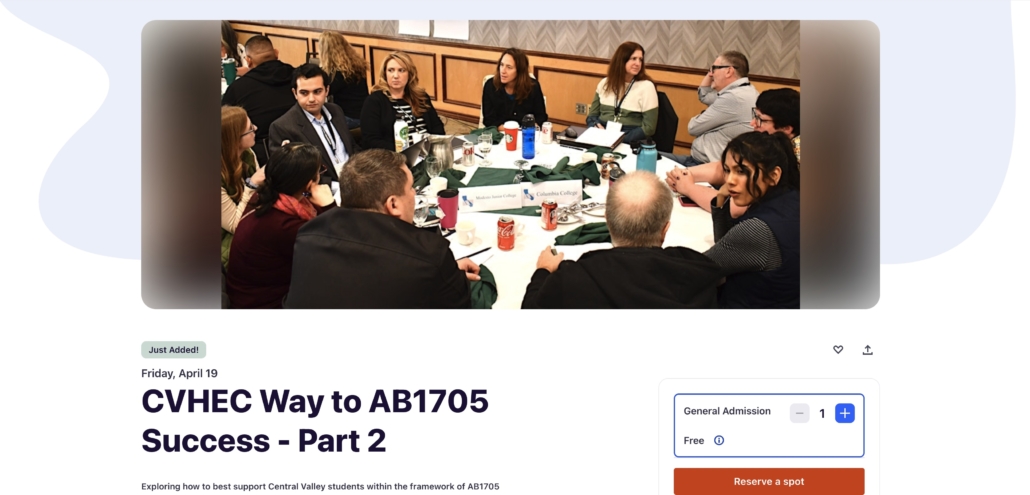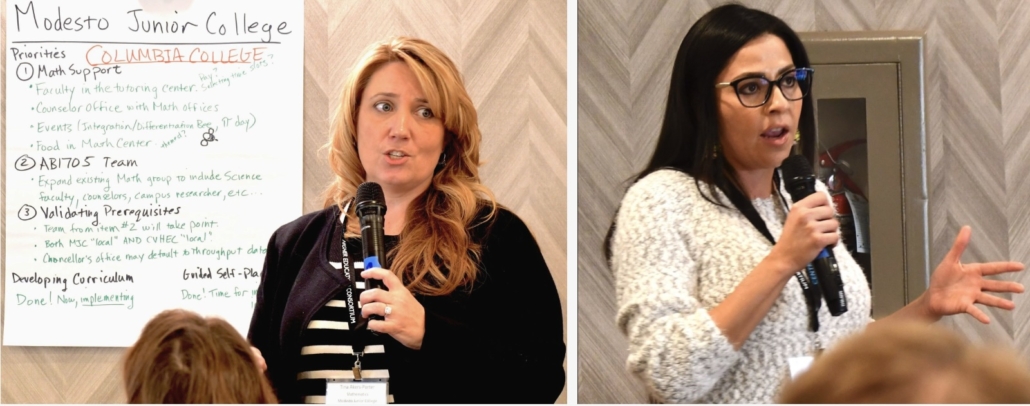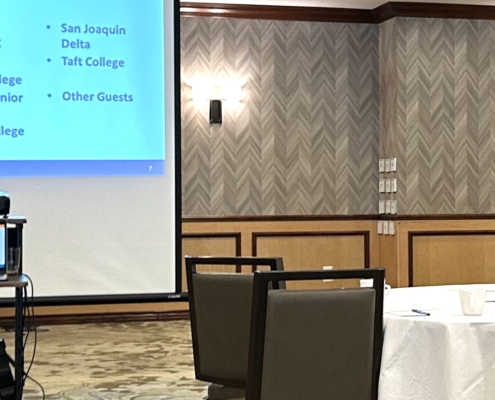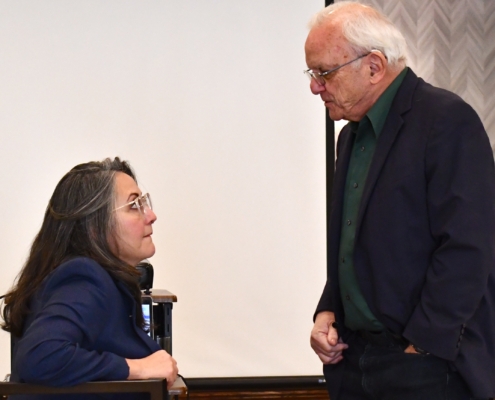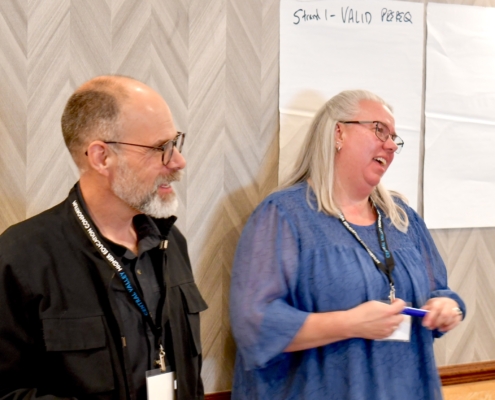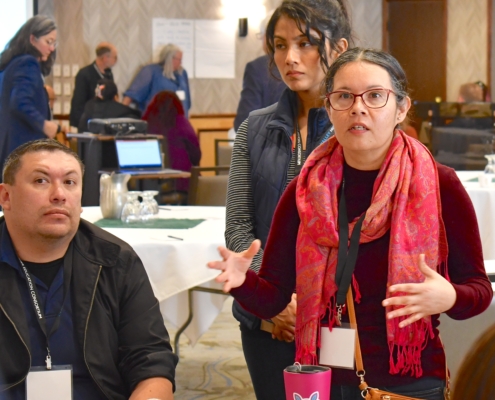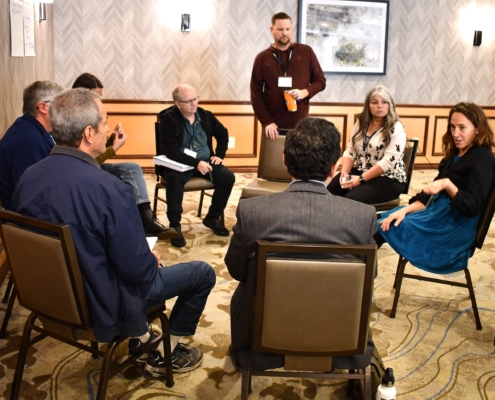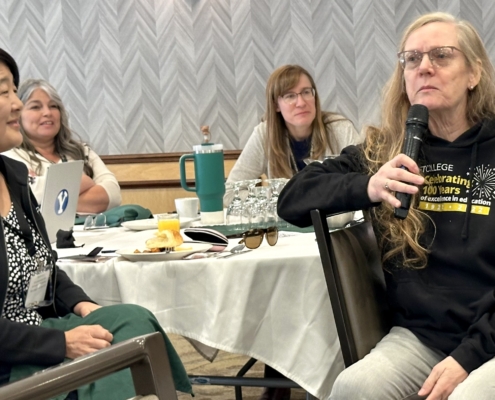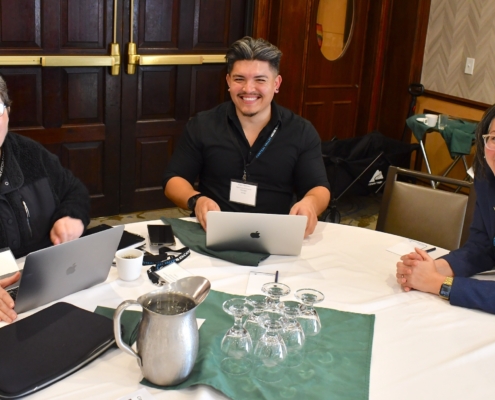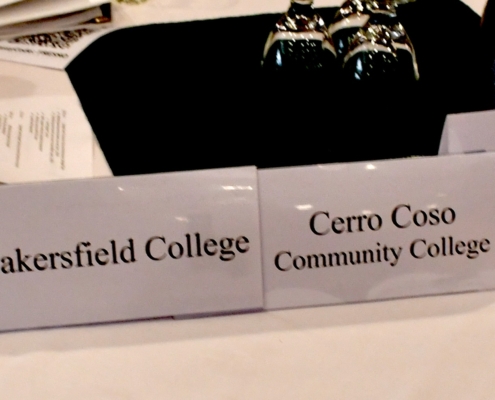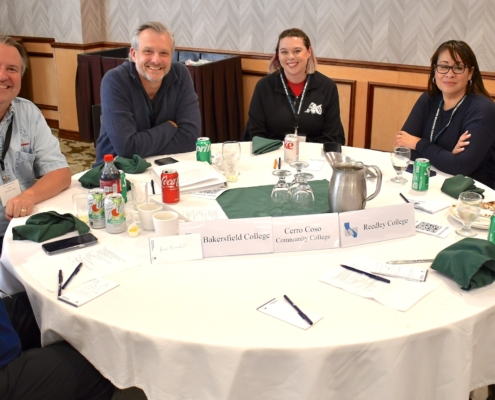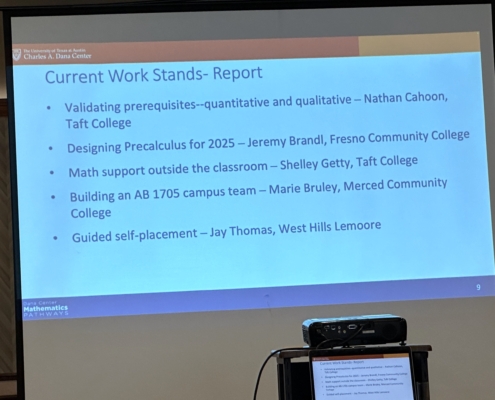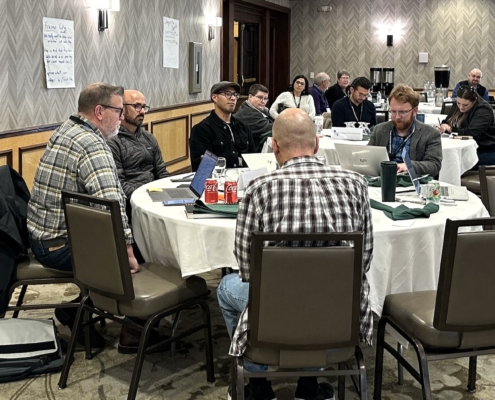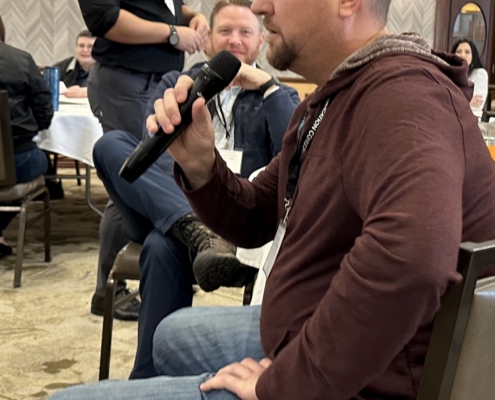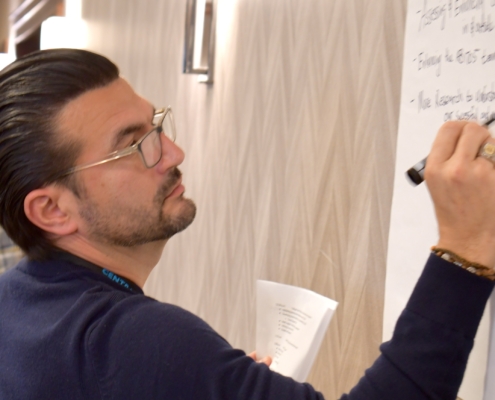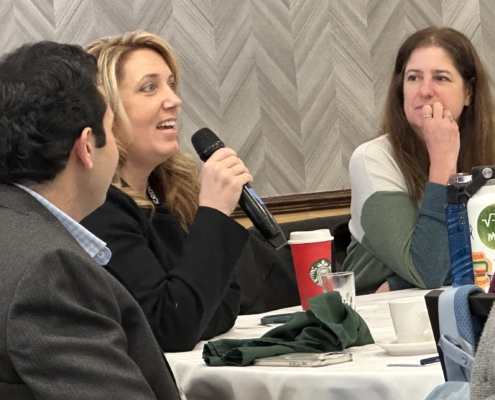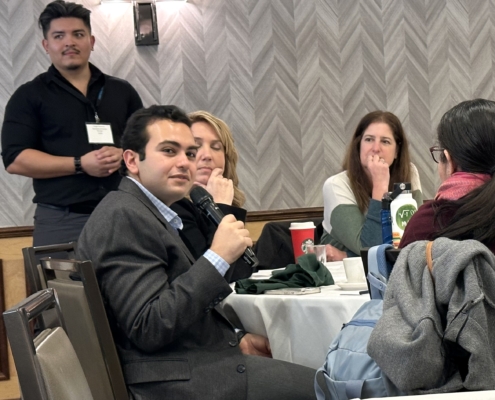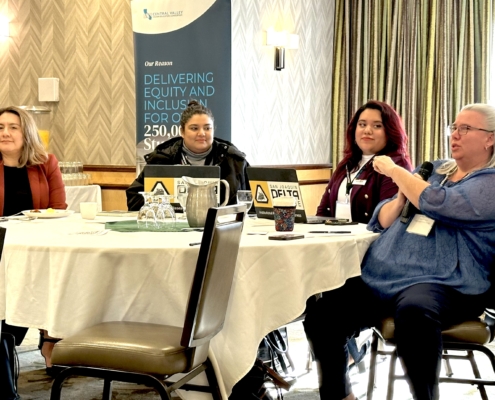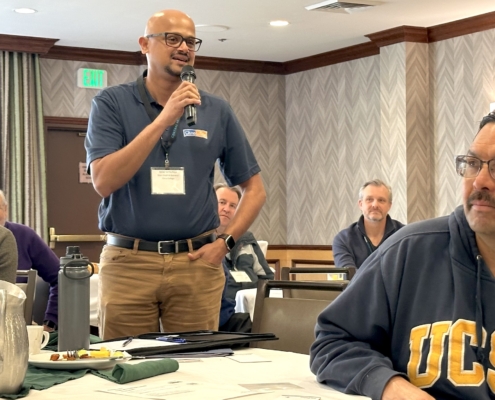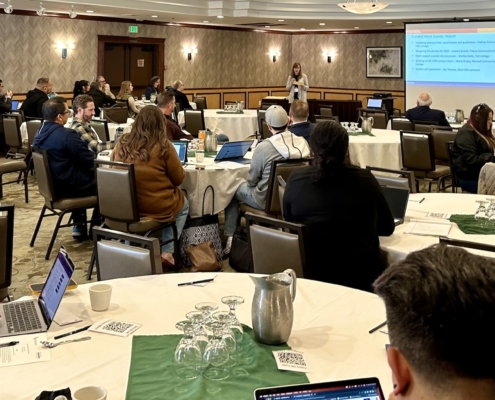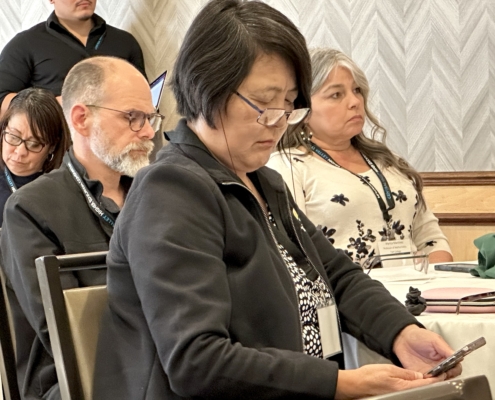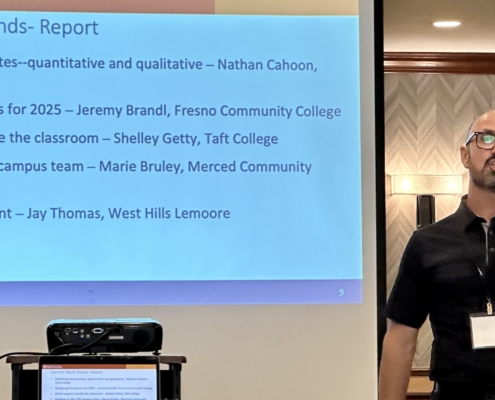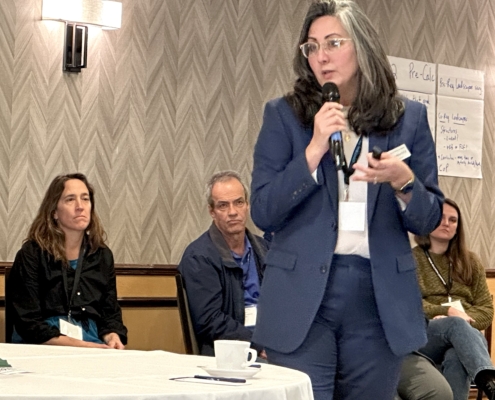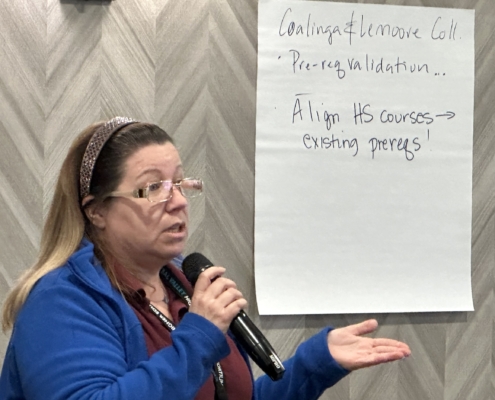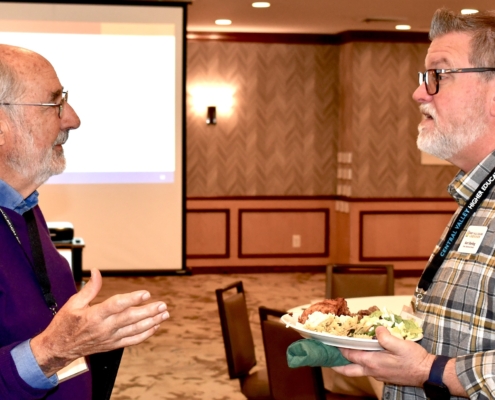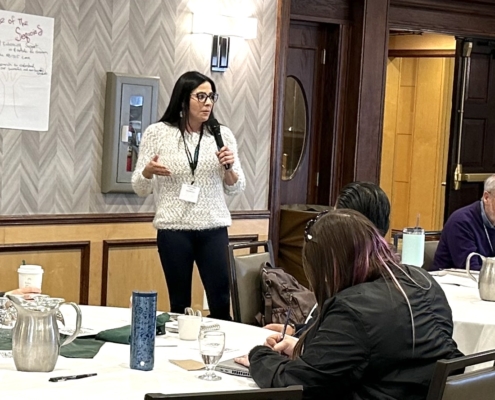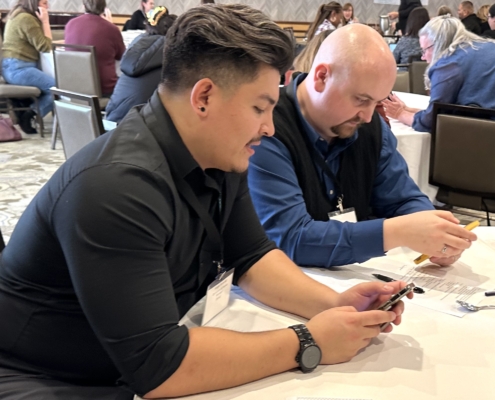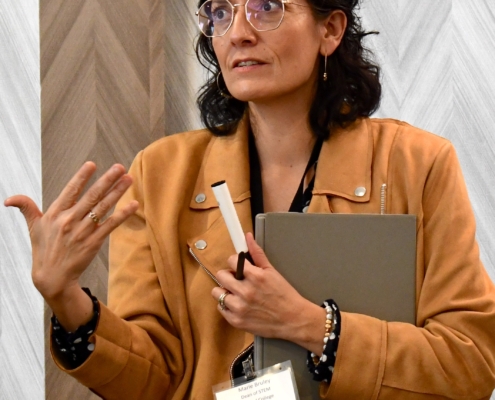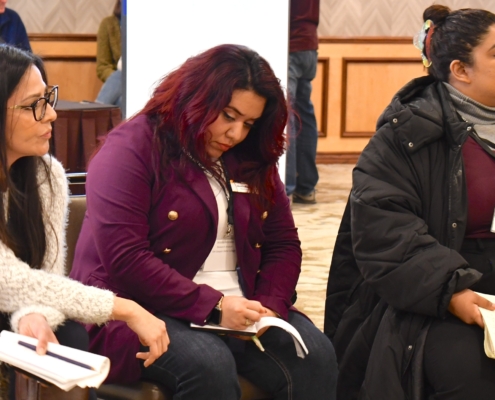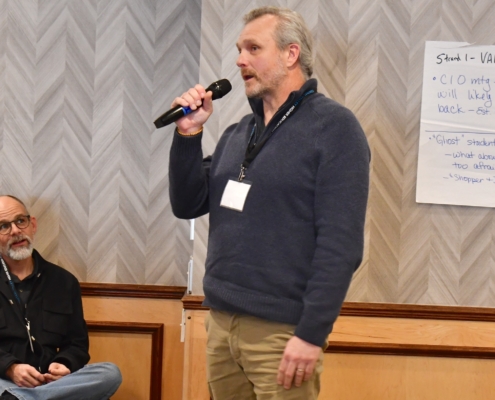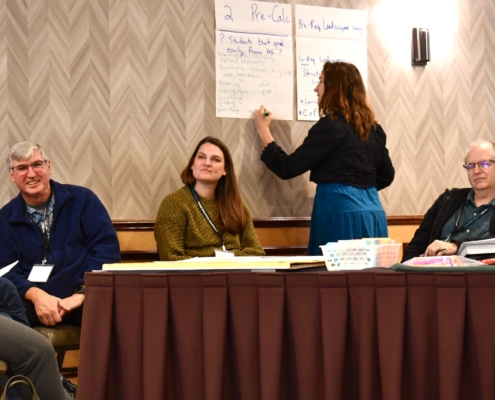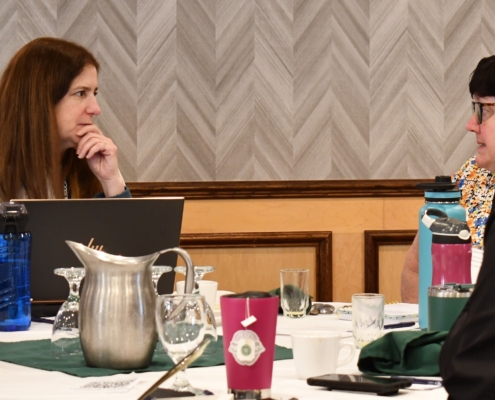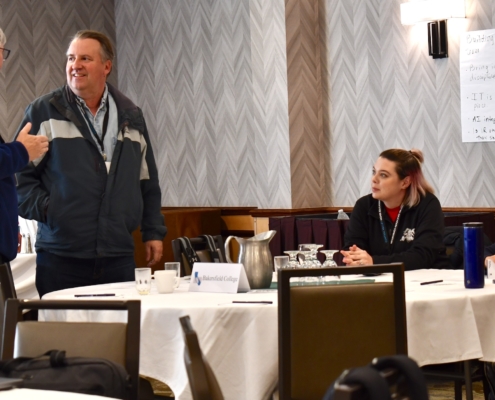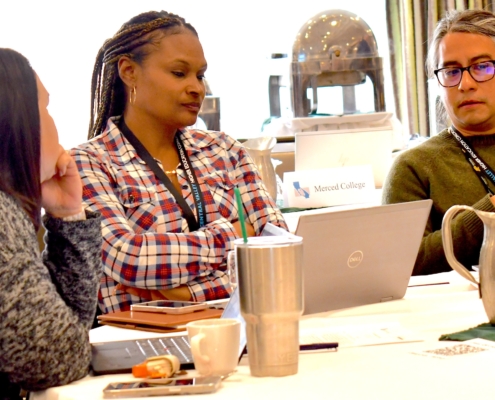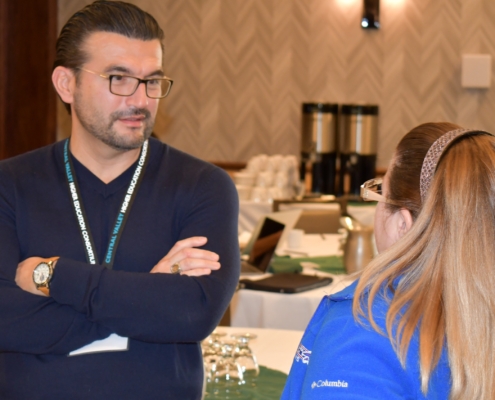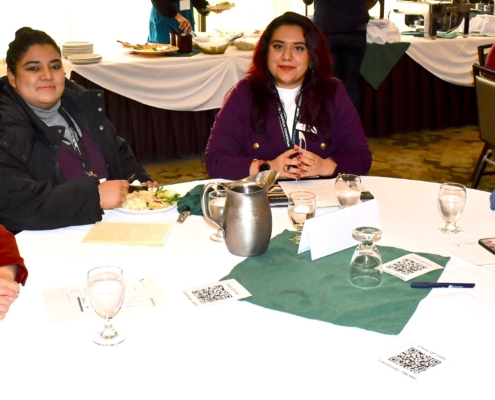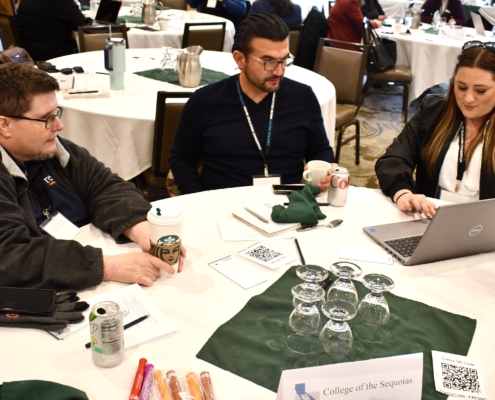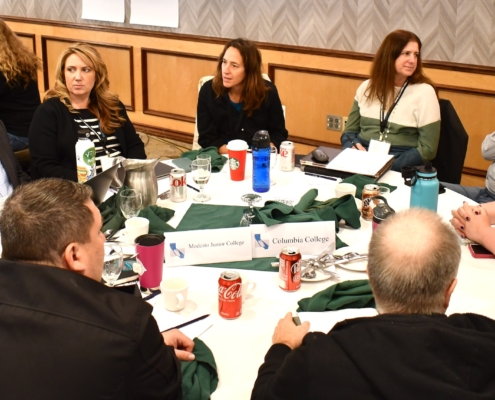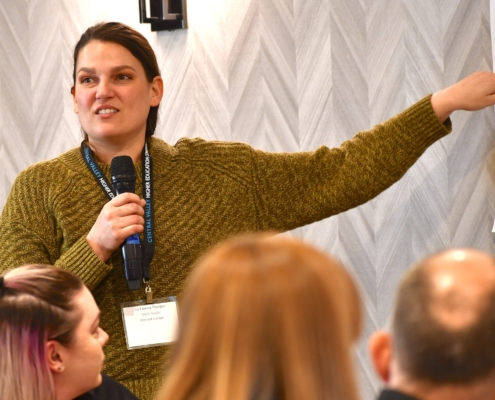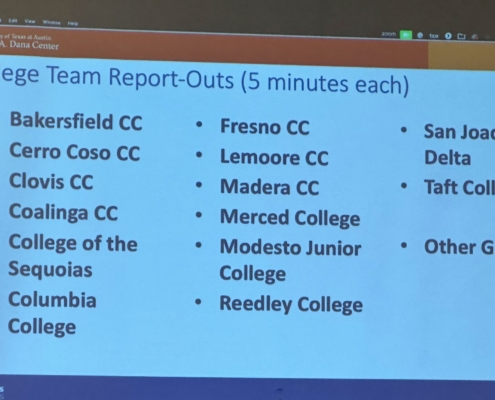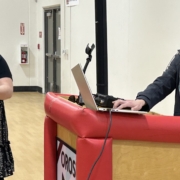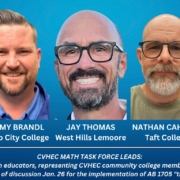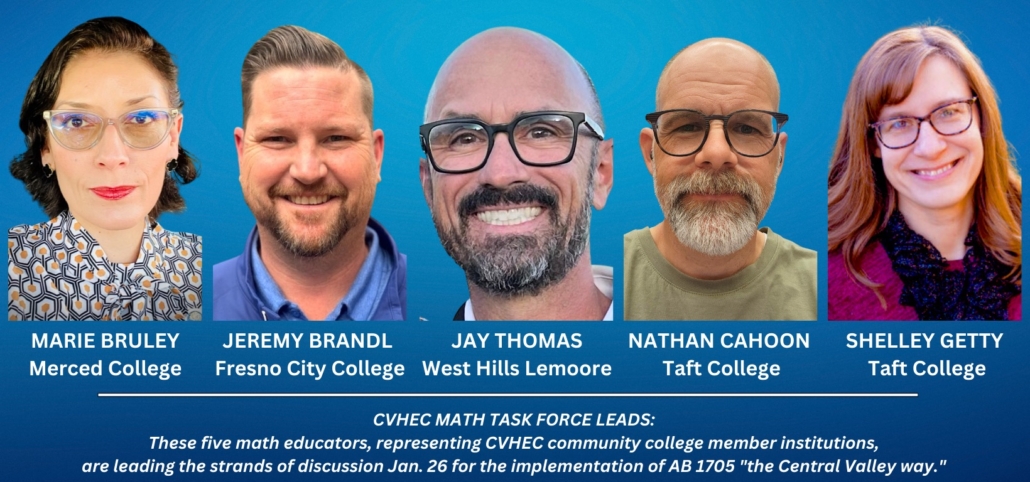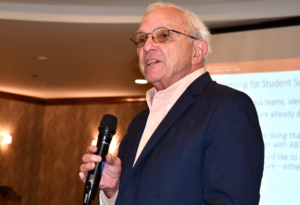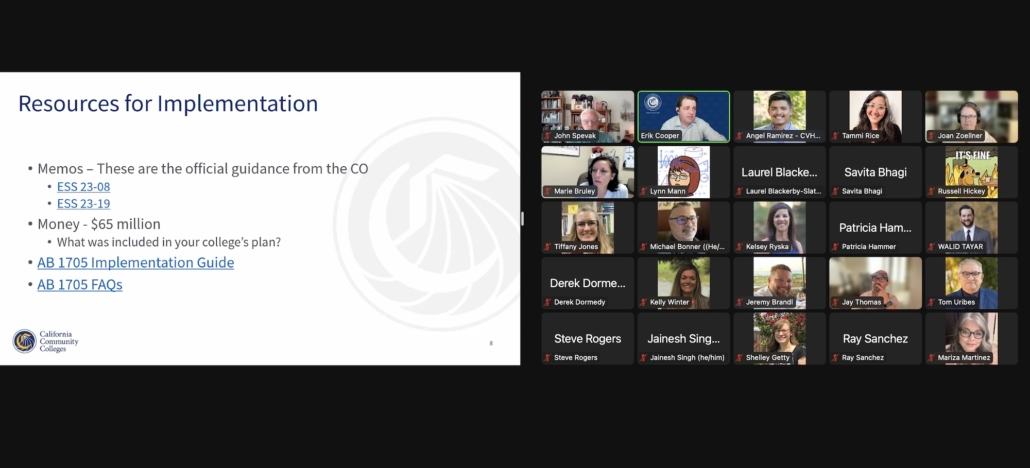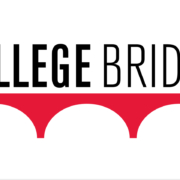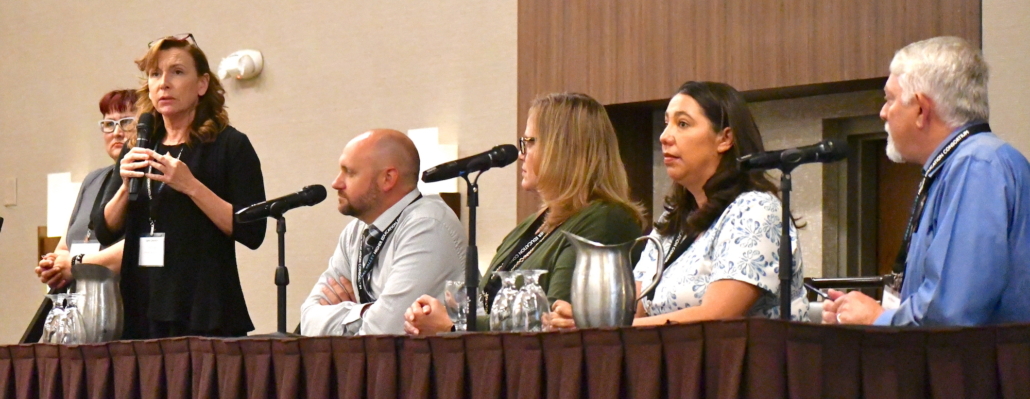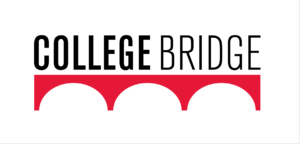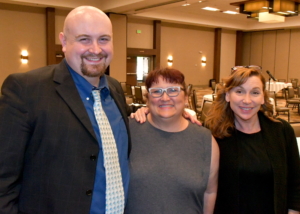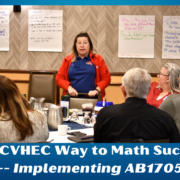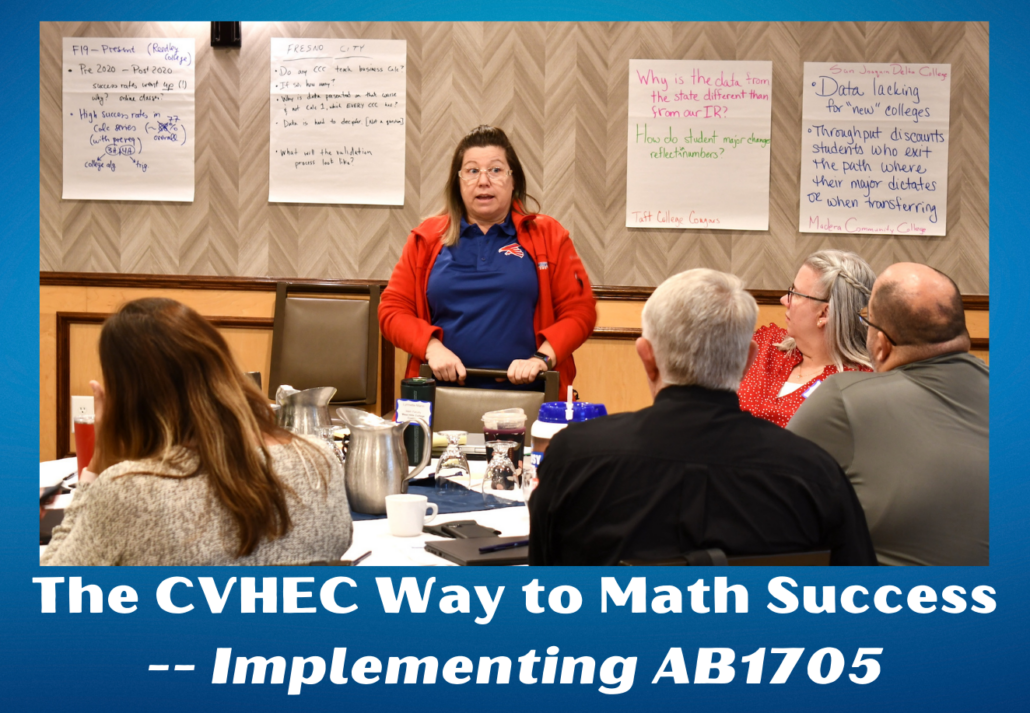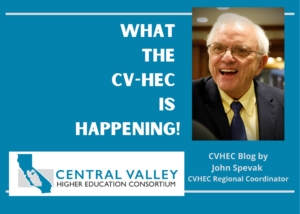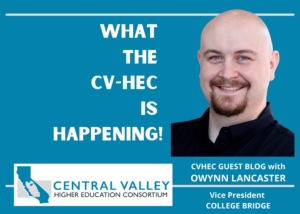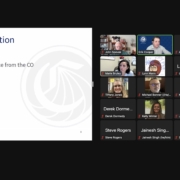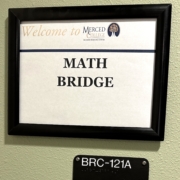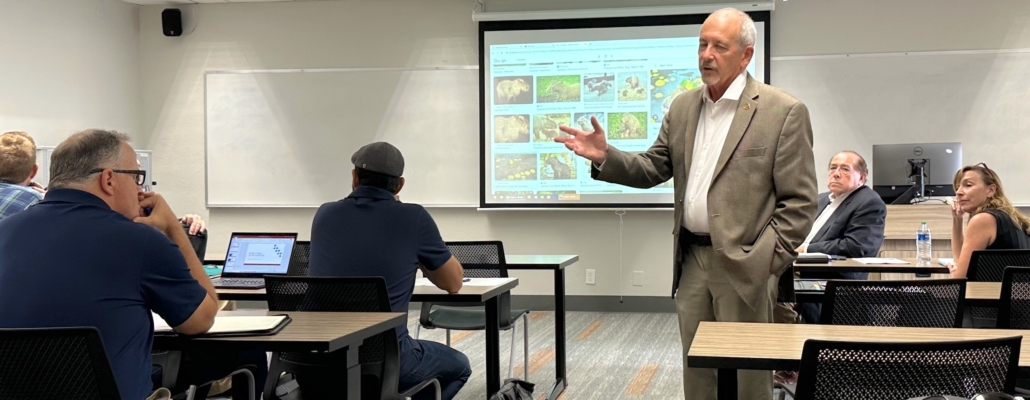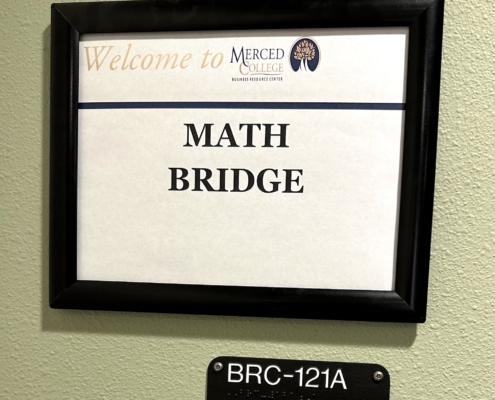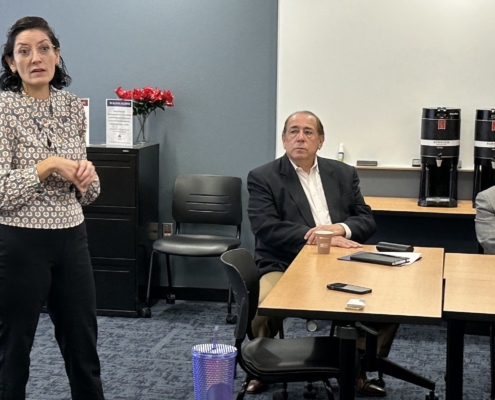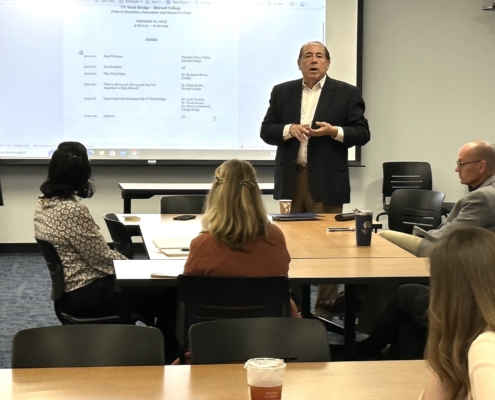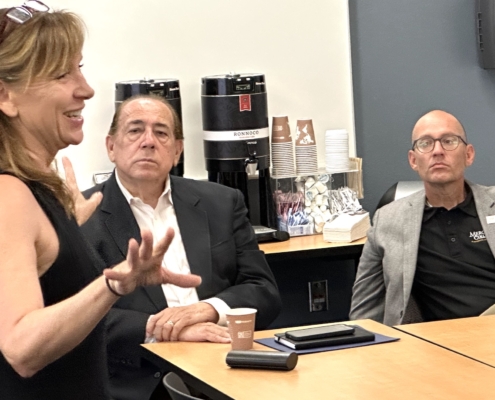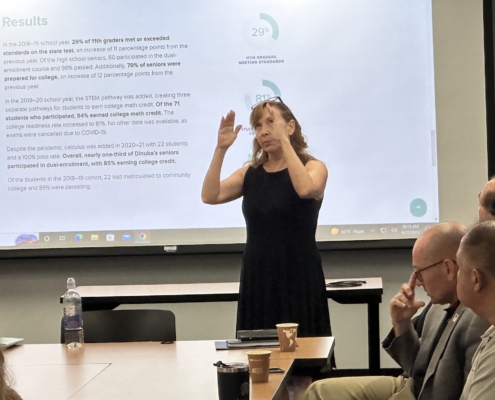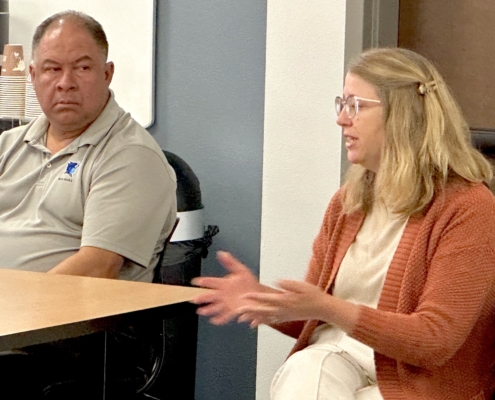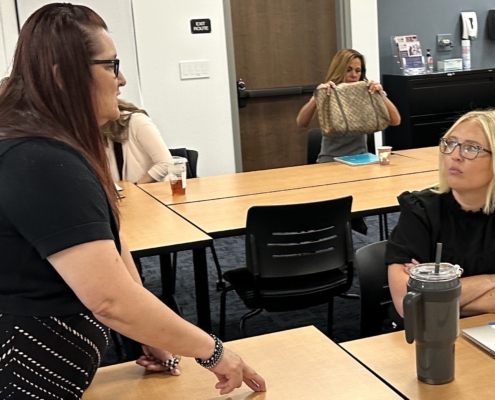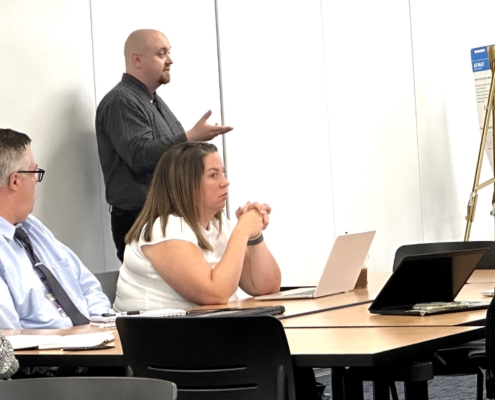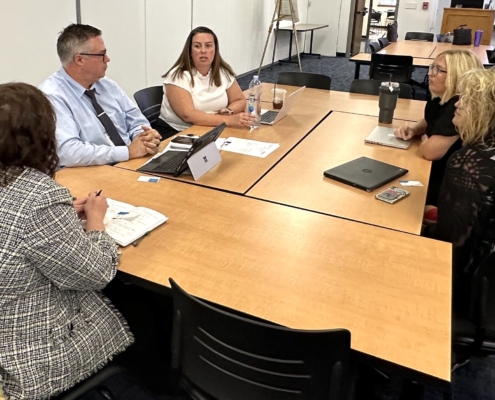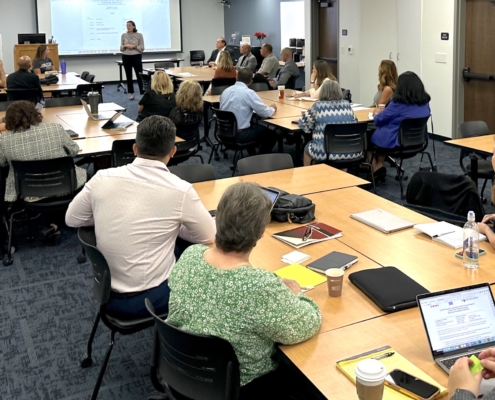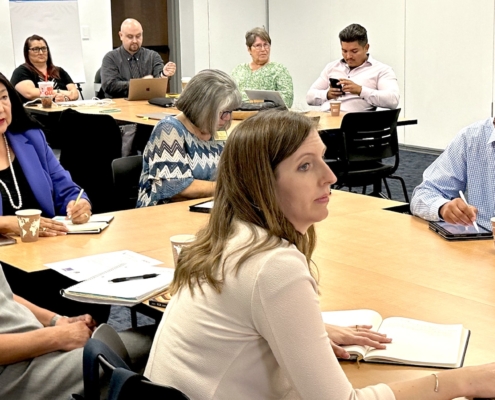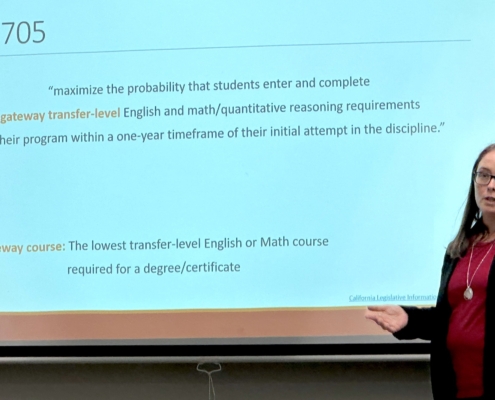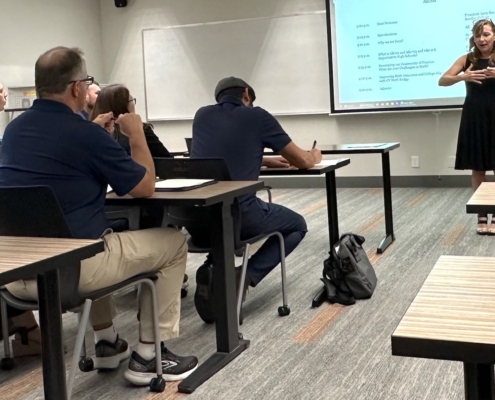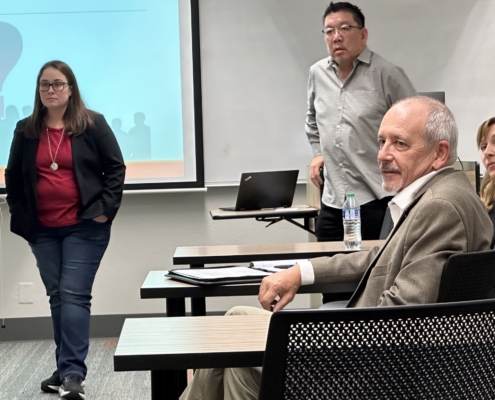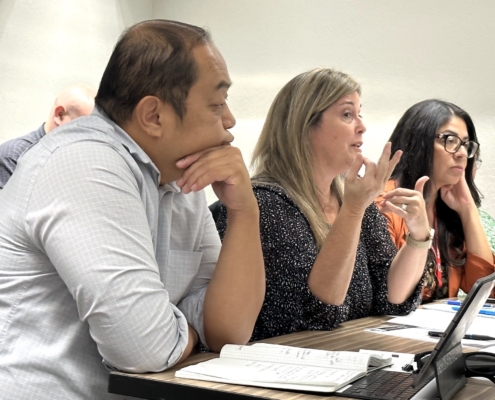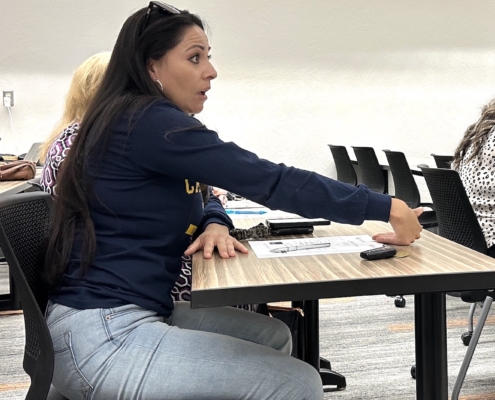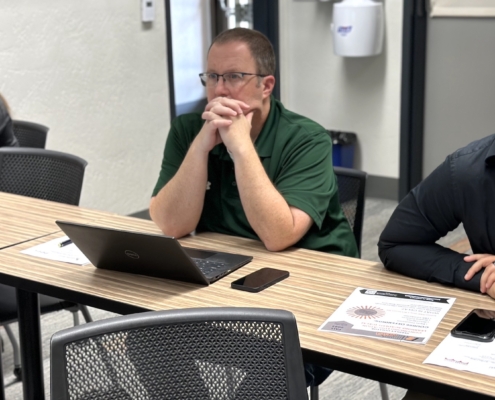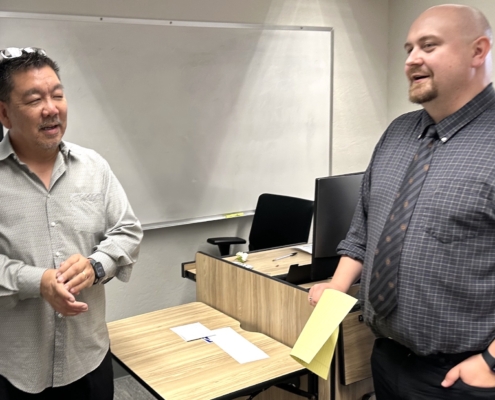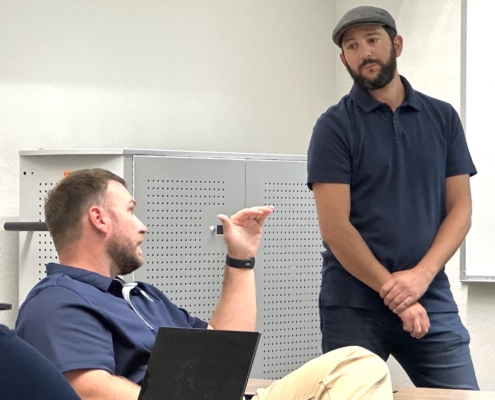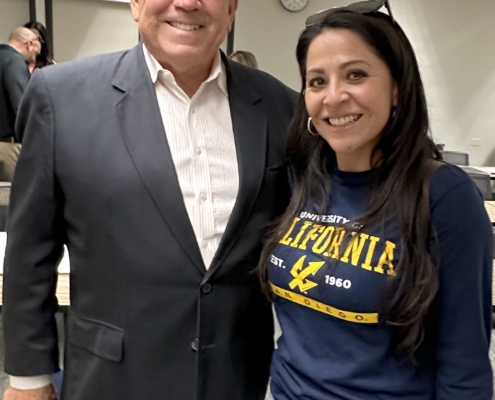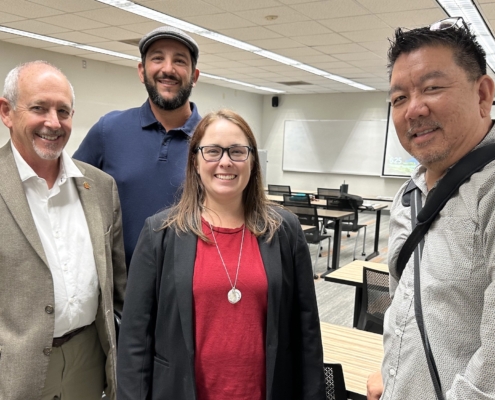Math Task Force continues AB 1705 work with April 19 convening
Secondary education voices invited to join discussion
Discussions to improve calculus pathways for STEM students amidst a pending deadline this summer continues with the third “Central Valley Way to AB1705 Success” Convening set for Friday, April 19 in Fresno that will also bring more secondary education voices to the table and a review of guidance issued by the California Community College Chancellors Office last month.
Registration is now open for the event in Fresno presented by the Central Valley Higher Education Consortium Math Task Force with the Charles A. Dana Center (University of Texas at Austin) from 9 a.m. to 3 p.m. at the DoubleTree by Hilton Hotel Fresno Convention Center, the site of two previous in-person convenings last fall and in January.
The event will re-convene community college math educators, administrators and institutional researchers working since the fall towards compliance with the final stage of AB1705: validation of equitable placement, support and completion practices for STEM programs.
Signed into law by Gov. Newsom in September 2022, AB 1705 is an amendment to the landmark legislation AB 705 (Irwin, 2017) which transformed placement and developmental education in the California Community Colleges. AB1705 supports full and comprehensive implementation by, among other requirements, specifying that colleges must demonstrate the benefit of transfer-level math preparatory courses for STEM Calculus 1 based on the following conditions:
- The student is highly unlikely to succeed in the first STEM calculus course without the additional transfer-level preparation.
- The enrollment will improve the student’s probability of completing the first STEM calculus course.
- The enrollment will improve the student’s persistence to and completion of the second calculus course in the STEM program, if a second calculus course is required.
From now until July 1, colleges have the opportunity to validate that their preparatory courses meet the aforementioned AB 1705 standards.
Since passage, the state’s community colleges have worked towards compliance of various aspects of AB1705 including 19 Central Valley community college members of CVHEC through representatives serving on the consortium’s Math Task Force consisting of math faculty and administrators.
The task force has held several virtual and in-person work sessions since October designed to collaborate in unity for compliance. At the last convening Jan. 26, more than 82 math and administrative representatives from the community colleges — including several campus research professionals — and one high school principal met with the task force to explore five strands of curriculum planning:
- Validating Prerequisites;
- Designing Precalculus for 2025;
- Math Support Outside and Inside the Classroom;
- Building an AB 1705 Campus Team; and
- Guided Self-Placement.
Since the Jan. 26 meeting, the strand leads have been preparing summaries of their breakout discussions held that day, said Dr. John Spevak, CVHEC regional coordinator who oversees the consortium’s Math Task Force.
Member college teams are also preparing summaries of the tentative plans they developed in the afternoon breakout sessions for oral reports. Additionally, the workgroups have been meeting and will report out on their progress in April regarding the strands.
A good portion of the April 19 meeting will be devoted to the data collection underway by CVHEC community college research professionals related to student success in math, part of the valleywide Data Collection Project under development by the consortium, said Spevak, who will again co-facilitate the April event with Dana Center colleague Dr. Tammi Perez-Rice.
Secondary ed voices
This next convening will also include representatives of K-12 school districts, including several high school principals who have already worked with CVHEC through the Central Valley Math Bridge Program.
“It’s important to bring into the conversation high school leaders and our colleagues who care as much about the future math success of students as community college math educators do,” said Dr. Benjamín Durán, CVHEC executive director.
That conversation was begun at the January convening of community college math professors and administrators when Marlena Celaya, principal of Orosi High School and former high school math teacher, told the group that Central Valley high school educators would very much like to participate in future discussions about math success for Central Valley students.
Spevak said this development will also foster additional learning about the high school math landscape as it pertains to college readiness.
Any Central Valley secondary education officials interested in attending the April 19 convening are welcome, he added.
CCC ‘validation memo’
Also up for discussion will be a Feb. 27 validation memorandum by the California Community College Chancellors Office entitled AB 1705 Validation of Equitable Placement, Support and Completion Practices for STEM Programs.
The Chancellor’s Office also presented a webinar March 4 to further discuss the details of this guidance and address questions.
The Dana Center and CVHEC teams are presently reviewing the CCC memo to provide analysis that will help guide the Math Task Force’s five strands committees and will be presenting its memo assessment in the coming weeks, said Joan Zoellner, M.A., who is the lead for the Dana Center’s Launch Years Initiative;
In a preliminary review of the memo, Zoellner noted that while the CCC memo provides direction on the validation process for transfer level math placement and enrollment practices for STEM programs, it indicates that no more than one transfer-level prerequisite shall be offered prior to calculus.
“The options for that prerequisite course are limited by the memo and validation options as well,” Zoellner said.
She recommended that consortium community colleges review the chancellor’s office memo and some of the findings presented to determine how it affects their respective campus.
“If possible, work with your IR department to confirm those numbers and results prior to the April 19 convening,” Zoellner advises.
For more info: centralvalleyhec@gmail.com
For media inquiries: Tom Uribes – cvheccommunications@mail.fresnostate.edu (or text 559.348.3278).
See also:
- CCCCO Memo Feb. 27, 2024: AB 1705 Validation of Equitable Placement, Support and Completion Practices for STEM Programs
- CVHEC Math Task Force
- What is AB 705 and AB 1705?
- WHAT THE CV-HEC IS HAPPENING BLOG (October 2022): AB 1705 – What Does It Do?
- CCC Memos and Resources
- https://bit.ly/MTFconveneKSEE24
- Valley’s math ed experts unite to address AB 1705 challenge for student success
- The CVHEC Way to Math Success — Implementing AB1705
- Math Task Force begins discussion of AB1705 implementation – Nov. 17 next
CVHEC Math Task Force meets in-person Oct. 13 for AB 1705 follow-up - NEWS RELEASE – CVHEC Math Task Force: Impactful legislation (AB 1705) Convenings Oct. 6 & 13
- CVHEC Website Feature: Math Task Force Page

